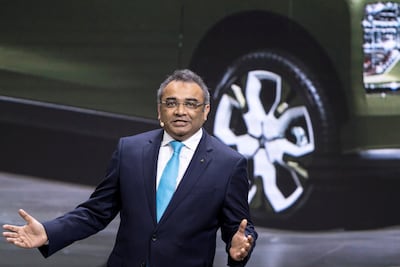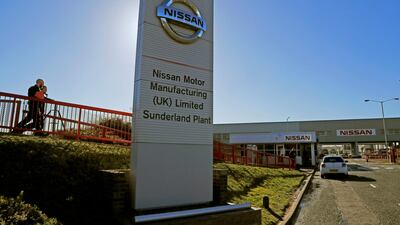A Nissan executive said that problems posed by Brexit are "peanuts" compared with coronavirus and described the EU-UK trade deal as an "opportunity".
The Japanese carmaker's chief operating officer Ashwani Gupta said recent issues at British ports – when queues of lorries delivering goods between the UK and the continent were stranded – did not trouble Nissan, with the business now set to expand operations in the north of England.
Prime Minister Boris Johnson said on Friday that the news was a "great vote of confidence in the UK."
As a result of the Brexit deal, the Nissan will now source more batteries from the UK to avoid paying EU tariffs on electric cars.

London and Brussels struck a trade accord on December 24 that avoided potential disruption posed by a no-deal Brexit.
The agreement meant car makers would avoid a 10 per cent EU levy on exported vehicles, provided they are made from parts sourced from national suppliers.
Nissan makes about 30,000 Leaf electric cars at its Sunderland factory, most of which use a locally-sourced 40 kilowatt-hour battery and thus remain tariff-free.
But more powerful versions use an imported system, which will now be bought in Britain, avoiding the tariff and potentially creating jobs in the UK.
"It will take a few months," Mr Gupta told Reuters. "Brexit, which we thought is a risk ... has become an opportunity for Nissan."
Asked about trade disruption, Mr Gupta said: "When I look at how Nissan has come out from the crisis of (a) tsunami, earthquake, floods, last week snow, tornadoes..., the start-up problem which we are seeing in the ports is peanuts.
"For a global manufacturer... to have additional documentation to fill a form at the border is nothing. People prepared for it, we have updated our software, we have updated our processes. It's OK."
The effect of Brexit will vary between carmakers.
Nissan opened the Sunderland plant in 1986 and made nearly 350,000 vehicles there in 2019.
In contrast, Ford, which imports everything it sells in Britain, raised some UK prices as it pays the tariff because it uses parts sourced in the US.
Mr Gupta also said the UK government's plan to phase out non-electric cars by 2030 would boost Nissan's British-made models.
"The market will pull more and more electrified cars, which means the return on investment on these kind of technologies will be better and better, day by day."


